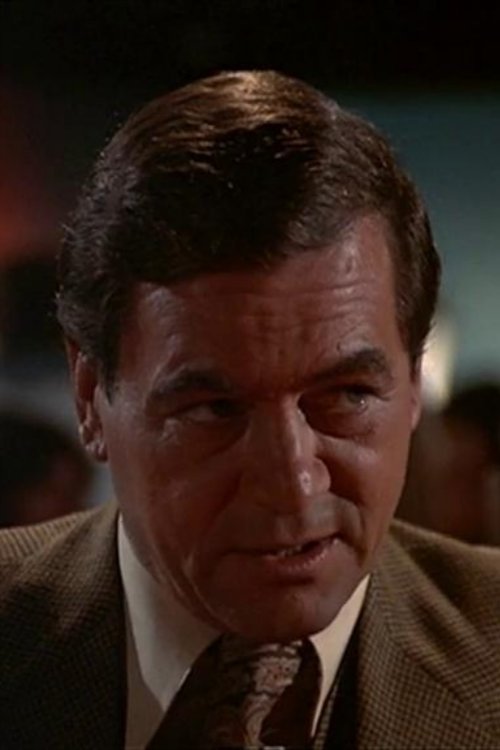
|
Brothers (1977)
Character: McGee
Thinly disguised account of the relationship between radical black activist Angela Davis and Black Panther and prison inmate George Jackson, who was one of those killed in a failed 1971 prison breakout.
|
|

|
Fear on Trial (1975)
Character: Thomas Bolan
The story of John Henry Faulk, a radio/TV personality of the 1950s, who was blacklisted during the McCarthy era. Faulk sued the organization that was behind the blacklisting, and the resultant trial, and Faulk's victory, helped to put an end to the blacklisting period.
|
|

|
The Day the Bubble Burst (1982)
Character: N/A
A fictionalized account of how the 1929 stock market crash hurt the elite and the struggling, and the forces that may have caused the crash to occur.
|
|

|
When We Were Young (1989)
Character: Bartman
A group of young people in 1959 get ready to set out on their journey to adulthood.
|
|

|
Judge and Jury (1997)
Character: Harold
An electrocuted killer returns from the dead to take revenge on the authorities who caught him.
|
|

|
Who? (1974)
Character: Haller
After an American scientist is severely injured and scarred in a car crash along the border with East Germany, he is captured by East German military. The scientists use metal implants to save him. Once he's back in the States, no one can tell if it's really him, so an intelligence specialist must determine who is under the "mask".
|
|

|
Family Plot (1976)
Character: Andy Bush
Spiritualist Blanche Tyler and her cab-driving boyfriend encounter a pair of serial kidnappers while trailing a missing heir in California.
|
|

|
Dempsey (1983)
Character: Gene Normile
Nominated for two primetime Emmy Awards in 1984, this made-for-TV movie follows the true story of American boxer Jack Dempsey, who became a media sensation in the 1920s as the world heavyweight champion. Based upon the book by Jack Dempsey and Barbara Piatelli Dempsey.
|
|

|
The Disappearance of Aimee (1976)
Character: Capt. Cline
In 1926, celebrated evangelist Aimee Semple McPherson mysteriously disappeared. She turned up several weeks later and recounted the details of her kidnapping and escape to authorities. Not everyone believed her, however, and she was accused of having gone away to have an affair with a married man. A court hearing took place to reveal the truth.
|
|

|
Dr. Max (1974)
Character: Dr. Jules Grogin
A small-town doctor neglects his family to look after his patients.
|
|

|
Charlie's Angels (1976)
Character: Bancroft
The Angels head for wine country to discover what happened to a missing man before he's declared legally dead and the estate goes up for grabs.
|
|

|
American Hot Wax (1978)
Character: D.A. Coleman
This is the story loosely based on Cleveland disc jockey Alan Freed, who introduced rock'n'roll to teenage American radio audiences in the 1950s. Freed was a source of great controversy: criticized by conservatives for corrupting youth with the "devil's music"; hated by racists for promoting African American music for white consumption; persecuted by law enforcement officials and finally brought down by the "payola" scandals.
|
|
|
|
|
|

|
Carny (1980)
Character: Skeet
Tired of being a small-town waitress, Donna departs with the latest carnival show, living with entertainers Frankie and Patch in a tense, emotional triangle.
|
|

|
The Darker Side of Terror (1979)
Character: Lt. Merholz
A psychological thriller about a research biologist who, angered when an associate is given a position over him based on stolen research findings, agrees to assist his former professor in a cloning experiment in which a duplicate of himself is created -- and which then, with a mind and will of its own, falls in love with the biologist's wife.
|
|

|
Master Ninja (1984)
Character: Havilland
Aging skilled master ninja, John Peter McAllister, and his young apprentice search for John's long lost daughter, all the while his old enemies try to stop him. The first two episodes of "The Master" edited into a feature length film used as a promo for the television series.
|
|

|
Gable and Lombard (1976)
Character: Attorney Kramer
A biography about the love affair between 1930s Hollywood superstars Clark Gable and Carole Lombard.
|
|

|
A Long Way Home (1981)
Character: Riggins
A married teenager sets out to find his long-lost brother and sister years after all three had been placed with different families following their abandonment by their migrant worker parents. Luckily, he finds a compassionate social worker who, at first reluctantly, decides to help him cut through the bureaucratic red tape.
|
|

|
F.I.S.T. (1978)
Character: Mr. Gant
Johnny Kovak joins the Teamsters trade-union in a local chapter in the 1930s and works his way up in the organization. As he climbs higher and higher his methods become more ruthless and finally senator Madison starts a campaign to find the truth about the alleged connections with the Mob.
|
|

|
Bound for Glory (1976)
Character: Locke
A biography of Woody Guthrie, one of America's greatest folk singers. He left his dust-devastated Texas home in the 1930s to find work, discovering the suffering and strength of America's working class.
|
|

|
Serpico (1973)
Character: Gilbert
New York cop Frank Serpico blows the whistle on the rampant corruption in the force only to have his comrades turn against him.
|
|

|
Griffin and Phoenix (1976)
Character: George Griffin
Griffin has been diagnosed with terminal cancer. Instead of quietly facing his death, he decides to have fun in the time remaining. At a college class on death, he meets Phoenix, who has terminal leukemia.
|
|























